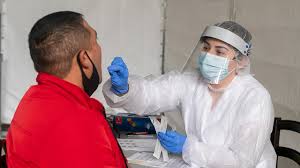COVID testing has played a significant role in managing its spread. While symptoms are often a key indicator of infection, some individuals can carry and transmit the virus without displaying any signs of illness. This makes understanding how COVID tests work and their role in detecting asymptomatic carriers an area of focus for many.
What is COVID testing?
Detecting the presence of the coronavirus and managing its spread relies on accurate testing. Several types of COVID testing options are available, each serving a specific purpose. Among them, molecular tests like PCR (polymerase chain reaction) stand out as the most accurate and are typically seen as the gold standard for diagnosing COVID-19. These tests identify the virus’s genetic material, delivering reliable results for active infections.
Rapid antigen tests are designed to identify viral proteins quickly. While they deliver faster results, they may be less sensitive than molecular tests and are more likely to produce false negatives. Antibody tests use blood samples to detect past infections by identifying antibodies created by the immune system in response to the virus. Unlike tests for active infections, antibody tests help determine if someone has previously been exposed to the virus.
COVID tests are administered using nasal swabs, saliva samples, or blood draws, depending on their purpose. They detect both active and past infections, making them valuable for diagnosis and outbreak tracking. COVID testing has played a key role in shaping public health strategies to combat the virus.
How Are Asymptomatic Carriers Identified?
An asymptomatic carrier is an individual infected with COVID-19 who does not show symptoms. These individuals can still spread the virus to others. This makes it harder to contain outbreaks. COVID testing helps identify asymptomatic carriers and reduces the risk of unwitting transmission. Testing methods include routine screenings in workplaces, schools, and community programs. These are used to detect cases where no symptoms are present.
What Are the Benefits of Frequent Testing?
Frequent testing helps capture both symptomatic and asymptomatic cases in real-time. This approach is especially useful in high-traffic areas such as healthcare settings, travel hubs, and large gatherings. Regular testing offers an additional layer of visibility into infection rates, which helps inform decisions related to public health measures. Although testing cannot prevent the virus from spreading, it provides insights into where and how transmissions are occurring.
What are the Latest Testing Options?
Testing availability and methods are continuously evolving, offering newer and more accessible options for individuals. Home test kits allow people to test themselves in the comfort of their own homes, eliminating the need for a trip to a medical facility. These kits often include clear, step-by-step instructions, making them easy to use for most individuals.
Rapid tests deliver results in minutes, making them invaluable in urgent situations or for those needing immediate answers. While traditional laboratory-based tests remain an option, they typically require more time to process. To find information about testing locations and the types of tests available, consult local healthcare providers, government websites, or community organizations. Understanding the purpose and accuracy of each testing method, along with familiarizing yourself with available options, can help you make an informed choice that best suits your needs and circumstances.
Take An Active Role With COVID Testing
COVID testing remains an ongoing part of protecting the health of your community. By staying informed about testing options and understanding their role in identifying asymptomatic carriers, you can help reduce the risk of spreading COVID-19. Learn more about local testing options and take the steps that are right for you and those around you.
- When to See a Foot and Ankle Surgeon
- Top Benefits of Visiting a Vein Clinic for Early Treatment of Vein Issues
- The Intersection of Gynecology and Endometriosis Treatment
- Regenerative Orthopedics for Post-Surgery Healing
- The Role of Pain Management in Living with Chronic Pain
